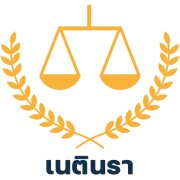Best Native People Lawyers in Thailand
Share your needs with us, get contacted by law firms.
Free. Takes 2 min.
Or refine your search by selecting a city:
List of the best lawyers in Thailand
Legal guides written by Smart Legal Solutions:
- Main Legal Measures to Protect Foreign Investment in Thailand
- The importance of the geographical indications for the Thai economy
About Native People Law in Thailand
Thailand is home to a diverse range of indigenous communities, often referred to as "hill tribes," including the Karen, Hmong, Lahu, Lisu, and Akha, among others. These communities have unique cultural identities, languages, and traditional lifestyles. The legal framework related to Native People in Thailand encompasses issues of citizenship, land rights, cultural preservation, and access to essential services. While efforts have been made to recognize and protect the rights of these communities, challenges persist, necessitating informed legal guidance for indigenous peoples and those working in advocacy roles.
Why You May Need a Lawyer
There are several situations where you might need legal consultation or representation regarding Native People in Thailand:
- Citizenship and Legal Status: Many indigenous individuals face issues with obtaining Thai citizenship, affecting their access to government services and legal protections.
- Land Rights: Disputes over land ownership and usage are common, as indigenous practices often differ from national legal frameworks, leading to conflicts and legal challenges.
- Cultural Preservation: Legal assistance may be needed to protect cultural heritage, traditional knowledge, and practices from exploitation or infringement.
- Access to Services: Ensuring access to education, healthcare, and other government services can require legal intervention, especially when facing bureaucratic hurdles.
- Discrimination and Human Rights: Addressing issues of discrimination and advocating for equal rights often involves legal action and representation.
Local Laws Overview
The legal landscape for Native People in Thailand involves several complex areas:
- Nationality Law: Many hill tribe members in Thailand lack citizenship, which affects their legal rights and access to services. The legal processes for obtaining nationality can be cumbersome and require legal expertise.
- Land Law: Customary land rights often clash with national laws. Indigenous communities traditionally use land communally and may not have official land titles, leading to potential land disputes.
- Cultural Protection Laws: There are provisions to protect cultural heritage under Thai law, which aim to safeguard indigenous art, traditions, and knowledge from external misuse.
- Education and Health Laws: Laws ensure access to education and healthcare, but barriers may exist for indigenous people, requiring legal support to navigate and overcome.
- Human Rights Legislation: Thailand is a signatory to several international human rights treaties, providing legal avenues for addressing issues of discrimination and rights violations of indigenous peoples.
Frequently Asked Questions
1. Who are the native people of Thailand?
The native people of Thailand, commonly known as hill tribes, include various ethnic groups such as the Karen, Hmong, Lahu, Lisu, Akha, and others, who live predominantly in the mountainous regions of northern Thailand.
2. Why do many indigenous people in Thailand lack citizenship?
Historical, administrative, and bureaucratic challenges have often prevented indigenous people from obtaining Thai citizenship, impacting their legal rights and access to services.
3. What rights do indigenous communities have over their land?
Indigenous communities often follow customary land-use practices, but these may not align with national land ownership laws, leading to disputes and a need for legal resolution.
4. How can indigenous people protect their cultural heritage?
There are legal protections for cultural heritage, but enforcement and awareness vary, requiring legal advocacy and support to ensure effective preservation and protection.
5. Are there specific laws in Thailand to protect native people?
While there are laws aimed at the welfare and protection of indigenous communities, implementation and enforcement remain inconsistent, making legal assistance essential.
6. How can one apply for Thai citizenship as an indigenous person?
The process involves navigating complex legal requirements, often necessitating professional legal guidance to successfully acquire citizenship.
7. What challenges do indigenous people face in accessing education?
Language barriers, remote locations, and lack of official documentation often hinder access to education, which may require legal support to address.
8. What role do NGOs play in supporting indigenous rights in Thailand?
NGOs often provide legal assistance, advocacy, and awareness campaigns to support and protect the rights of indigenous communities in Thailand.
9. Can indigenous traditions impact legal proceedings?
Traditional practices and beliefs may influence legal cases, requiring culturally sensitive legal approaches and understanding by legal professionals.
10. What resources are available for understanding native people laws in Thailand?
Legal experts, scholarly articles, governmental publications, and NGO reports are valuable resources for understanding the laws affecting native people in Thailand.
Additional Resources
For further assistance and information related to Native People in Thailand, consider reaching out to the following organizations and resources:
- Indigenous Peoples' Attorneys: Seek legal professionals specializing in indigenous rights and issues.
- Government Legal Aid Services: Access state-provided legal aid for low-income individuals needing legal representation.
- NGOs and Human Rights Organizations: Organizations such as the Hill Area Development Foundation provide legal assistance and advocacy for indigenous rights.
- Academic Institutions: Universities with programs focused on indigenous studies and legal frameworks.
- Thai National Human Rights Commission: Engages in addressing human rights violations and discrimination cases involving indigenous peoples.
Next Steps
If you find yourself in need of legal assistance related to Native People in Thailand, consider the following steps to secure the help you need:
- Consult a Legal Expert: Find a lawyer with experience in indigenous law and the issues pertinent to your situation.
- Gather Documentation: Collect all relevant documents, including identity papers, land agreements, and other legal paperwork to support your case.
- Reach Out to NGOs: Contact non-governmental organizations that specialize in indigenous rights for guidance and support.
- Explore Legal Aid: If financial constraints are a concern, inquire about legal aid programs that can provide assistance without financial pressure.
- Stay Informed: Keep abreast of any changes in legislation or policies affecting indigenous peoples, as these may impact your rights or legal position.
Lawzana helps you find the best lawyers and law firms in Thailand through a curated and pre-screened list of qualified legal professionals. Our platform offers rankings and detailed profiles of attorneys and law firms, allowing you to compare based on practice areas, including Native People, experience, and client feedback.
Each profile includes a description of the firm's areas of practice, client reviews, team members and partners, year of establishment, spoken languages, office locations, contact information, social media presence, and any published articles or resources. Most firms on our platform speak English and are experienced in both local and international legal matters.
Get a quote from top-rated law firms in Thailand — quickly, securely, and without unnecessary hassle.
Disclaimer:
The information provided on this page is for general informational purposes only and does not constitute legal advice. While we strive to ensure the accuracy and relevance of the content, legal information may change over time, and interpretations of the law can vary. You should always consult with a qualified legal professional for advice specific to your situation.
We disclaim all liability for actions taken or not taken based on the content of this page. If you believe any information is incorrect or outdated, please contact us, and we will review and update it where appropriate.
Browse native people law firms by city in Thailand
Refine your search by selecting a city.
















